In this article you will learn how to gamify interactions and questionnaires. You will learn how to give specific awards to participants and clients. The goal of these awards is to improve the response rates of clients and participants.
First we will explain what an award is. Then we will demonstrate how to work with default awards. Third, we will show how to work with custom awards. We will finish this guide by giving some examples.
What is an award?
On certain conditions (for example when a participant filled in all planned questionnaires of a day), an award can be given. When an award is given to the participant it will pop up on the phone screen of the participant or client.
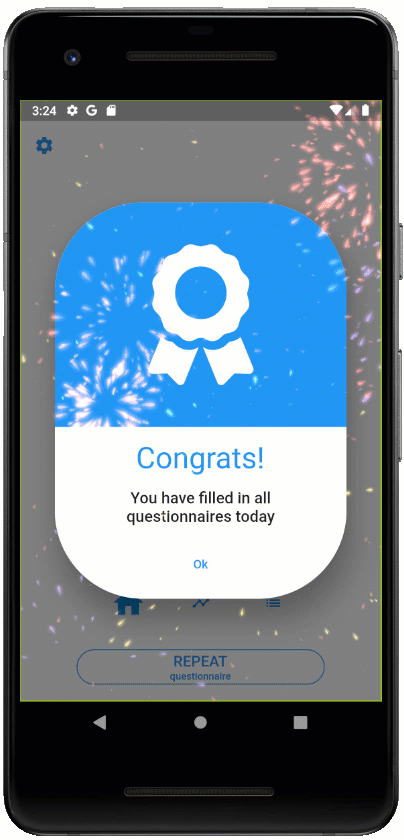
On the award page of the m-Path app, the participant or client can revisit all awards. Awards that have not yet been given are annotated with a ‘?’ icon. Below each award one can see the progress to getting the award. On top of the award it is shown how many times a specific award was given to the user. All awards are unique per practitioner or researcher. If clients have awards from multiple practitioners or researchers, they can choose the practitioner or researcher of whom they want to see the awards.
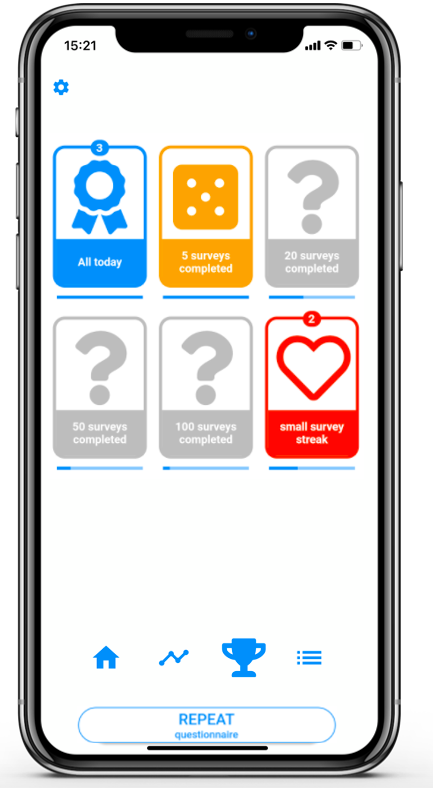
Default awards
In the settings of each individual client, the practitioner can switch on default awards as is shown in the following image:
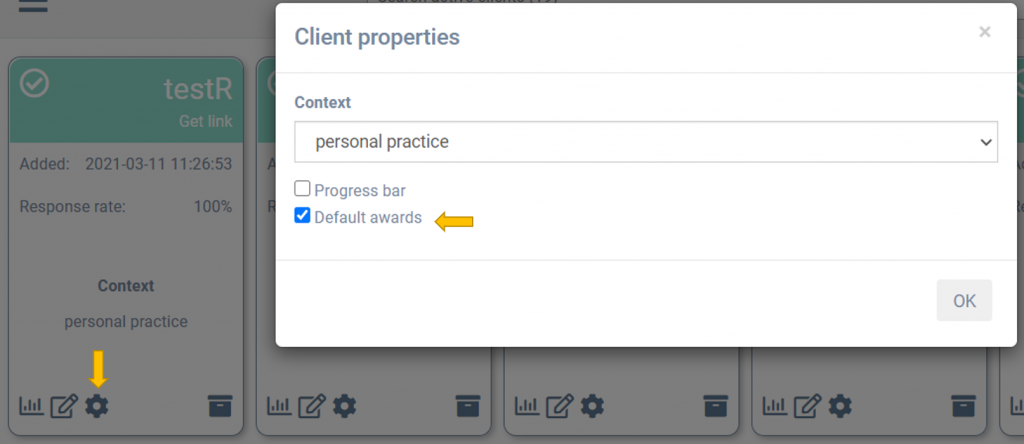
Using the default awards, nine awards can be obtained by the participants and clients:
- All today: Given if all notifications of a certain day are answered in time (AND if the amount of these notifications exceeds 2). Can be given multiple times.
- 5 surveys completed: Given when the first 5 questionnaires or interactions are completed.
- 20 surveys completed: Given when the first 20 questionnaires or interactions are completed.
- 50 surveys completed: Given when the first 50 questionnaires or interactions are completed.
- 100 surveys completed: Given when the first 100 questionnaires or interactions are completed.
- Small survey streak: Given when the app user answers 15 notifications in a row without missing a notification. Can be given multiple times.
- Medium survey streak: Given when the app user answers 20 notifications in a row without missing a notification. Can be given multiple times.
- Big survey streak: Given when the app user answers 25 notifications in a row without missing a notification. Can be given multiple times.
- Huge survey streak: Given when the app user answers 45 notifications in a row without missing a notification. Can be given multiple times.
Custom awards
It is also possible to create custom awards. To do so, add a question with type Award. Under the Specific tab, you can then customize the award.

We will now discuss all customization options.
Award label
The Award label is the name of the award. This is the identification of this specific awards. In later questionnaires this award can be updated or be given again by using the same label.
Expression string
The Expression string is probably the most important but also the most complex option in the award question. This defines the current progress of an award. The progress of an award is shown on the award page of the client’s app. The progress is shown from 0 (no progress) to 1 (award given).
E.g. The expression string ‘0.5’ will set the progress of the award to 50%. If this expression is 1 or bigger, the award will actually be given to the client (unless there are other constraints from other options, such as ‘not on same day’ that prevent this).
The expression string can also execute simple mathematical expressions as explained in the computation question. In this expression you can also use the previous state of the award itself by referencing the label of the award. For example, an award with label ‘labelAward’ can be used as [labelAward] in the expression. If there is no previous state of the award [labelAward] will be set to 0.
Some examples:
- Expression = ‘1’: This will immediately give the award
- Expression = ‘0.5’: This will set the progressbar to 50% of the award
- Expression = ‘[labelOtherQuestion]’: This will set the value to the answer of question with label ‘labelOtherQuestion’. If the answer was 1 or higher, the award will be given.
- Expression = ‘([labelQ1]+[labelQ2]+[labelQ3]+[labelQ4])/4’: The answer will be set to the average of the answers of the four questions with labelQ1 to labelQ4.
- Expression = ‘[labelQ1]>75’: The award will be given if the answer of question with labelQ1 was bigger then 75. For example, if a score of some quiz is high enough (in this case higher than 75), the award will be given.
- Expression = ‘[labelAward]’, where ‘labelAward’ is the label of the award: The progress of award with stays exactly the same as it already was.
- Expression = ‘[labelAward]+1/20’, where ‘labelAward’ is the label of the award: 1/20 is added to the progress. After 20 times the award will reach 1 and the award will be given.
- Expression = ‘{[labelAward]+1/20}*{[labelAward]<1}’, where ‘labelAward’ is the label of the award: 1/20 is added to the progress. After 20 times the award will reach 1 and the award will be given. The next time the participant encounters this question, its previous value will be 1 or bigger and ‘[labelAward]<1’ will be false and return 0. The award’s progress will be reset. This way an award can be given multiple times.
Text
The main text of the award (see image below) will be shown on the award when it is given, but not in the award page. This text can be a bit longer, but still try to limit it for smaller phones. It should not be much longer then ‘You are collecting valuable data! You responded to all notifications today!’.
Short text
The header or title of the award (see image below) is the only thing seen on the award page. Try to limit this as much as possible. For example, on phones with a small screen, the text ‘Medium survey streak’ will not fit on the small version of the award on the award page.
Color
You can also customize the color of the award (see image below). Choose one of the standard colors by typing the name of the color (one of the following are possible: blue, red, green, yellow, orange, black, grey, purple, pink, brown). It is also possible to put in a color in RGB. For example (255,0,0) for red.
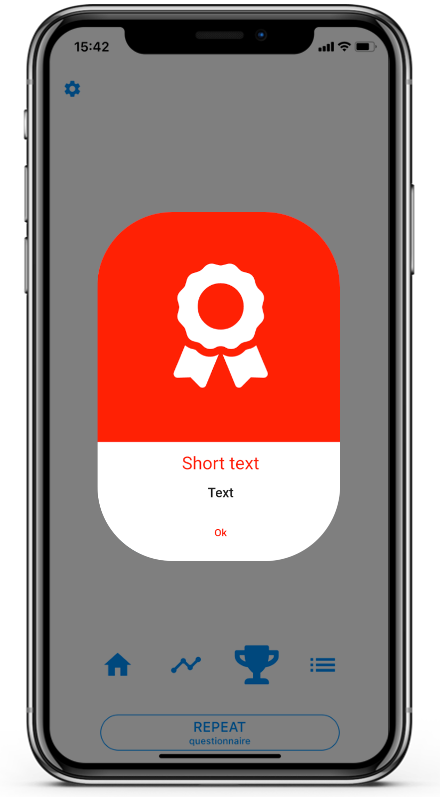
Icon
In the Icon option, the icon of the award can be chosen. The built-in icons available in m-Path are:
alert, trophy, smiley, medal, crown, star, heart, angleDoubleUp, coins, handHeart, cartYou can try these out in the m-Path survey preview to find out how these look.
It is also possible to use custom images or icons by entering the address of the image or SVG (e.g. https://m-path.io/mediafiles/SVGCOACHILD/0.svg).
Show fireworks upon achievement
If chosen, fireworks will be visualized on the phone when the award is given.
Show award instantly, during interaction
If chosen, the award will be shown instantly, during the questionnaire. If not, the award will only be given after the questionnaire is finished.
Not on same day
If chosen, an award cannot be given twice on the same day. Even if the expression leads to a progress bigger or equal to one, the award will not be given again when this award was already given on the same day.
Not on same beep
If chosen, an award cannot be given twice by the same notification. Even if the expression leads to a progress bigger or equal to one, the award will not be given again when this award was already given by a questionnaire triggered by same notification.
One time only
If chosen, the award can only be given once. Even if the expression leads to a progress bigger or equal to one, the award will not be given again when this award was already given to the participant or researcher.
Is a coinpurse
To create a coinstore or award coins, see Coinstore for more about this feature.
Example Awards List
In the m-Path library, look for the “Example DD Awards” interaction to get a list of example daily diary/ESM awards you can use as inspiration or to build your own solutions off of. You can peruse this list at your leisure, but we will run through a few of the awards here to explain how they work.
Scientist
The simplest type of achievement, without any conditional logic. Note the expression string being “1”, which means it will be awarded directly. The “one time only” box being ticked means that this is a one-time award, in this case awarding the participant for simply participating.
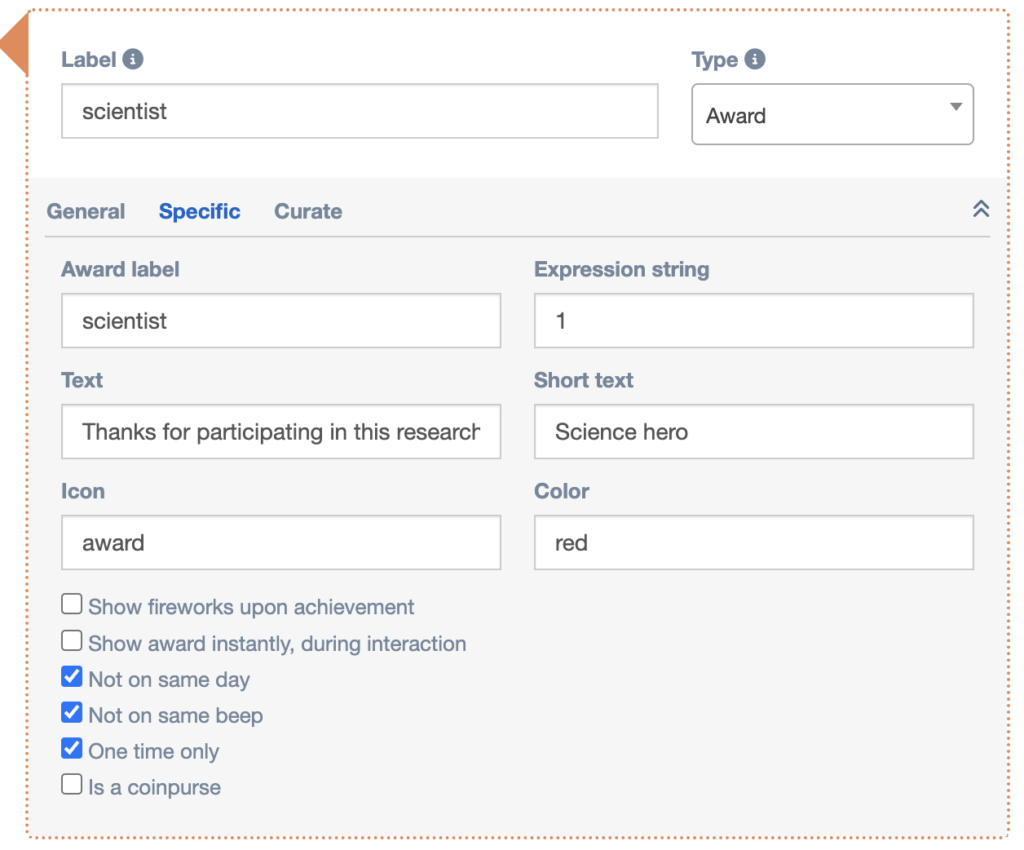
Doing great
You can also reward a participant for submitting a certain amount of surveys, as shown in the following award. The expression string adds a hundredth of the award every time it it is triggered, so after a hundred triggers, the award is presented. The award label is where the progress is stored, so make sure that in the expression string, you enter the award label exactly, otherwise progress will not be recorded properly.
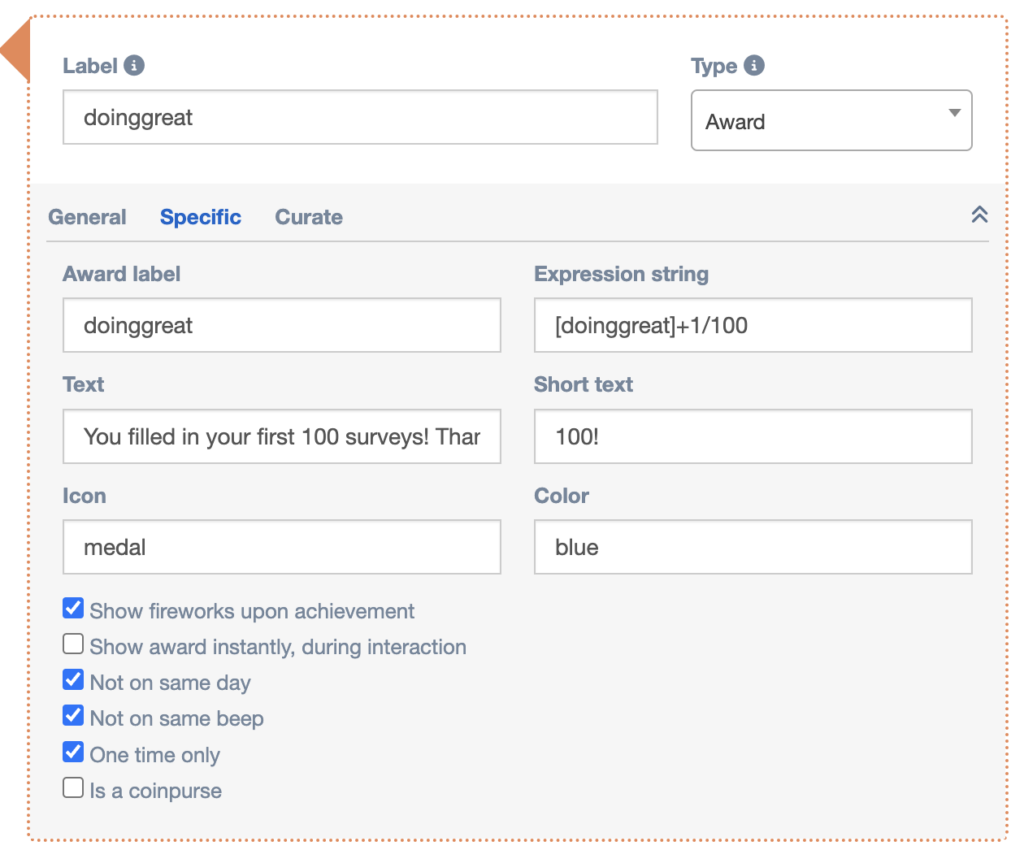
Small streak
You can also award consecutive surveys being submitted by using one of the built-in variables. [system_maxstreak] keeps track of the current streak, and in this award, we want to award a participant having filled in 7 consecutive surveys (in this DD example, a full week). By using the modulo operator (%), we can grant this award several times.
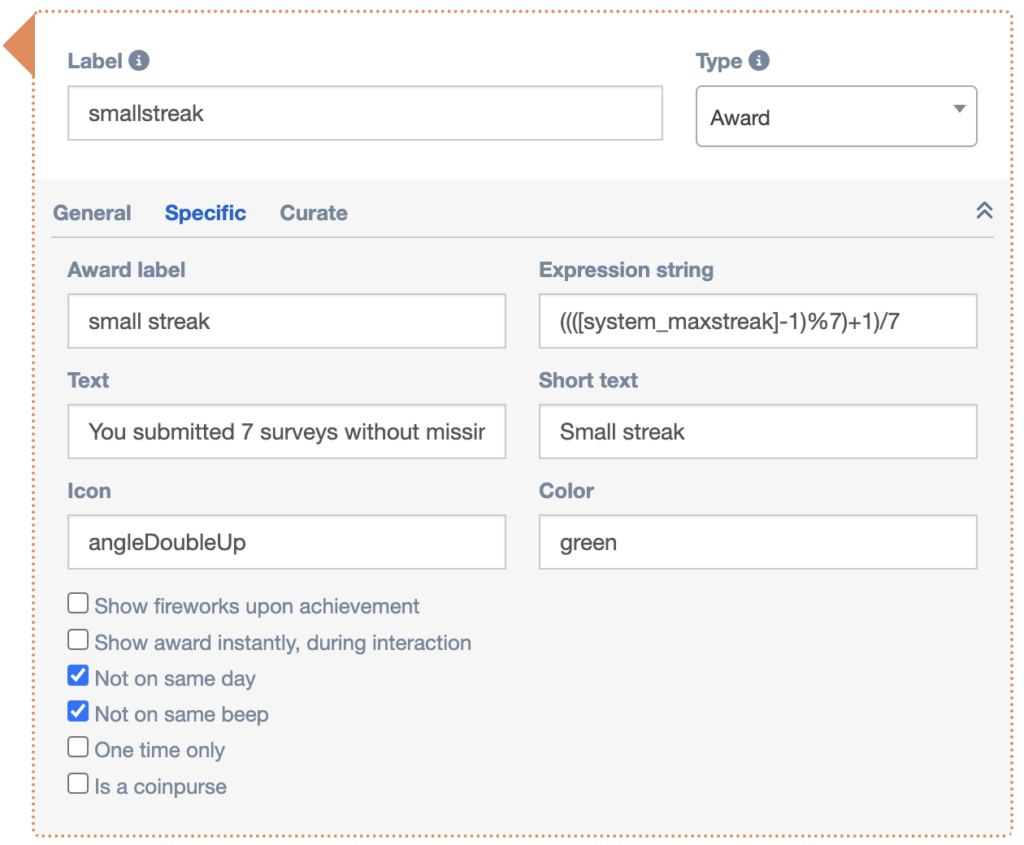
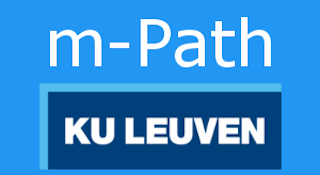
Does the basic free version also have this function to set up the awards?
Because in the basic version, I couldn’t find the setting buttons or client cards.
Thanks very much